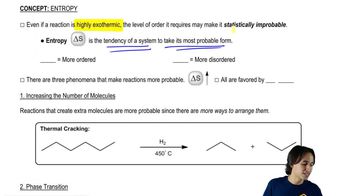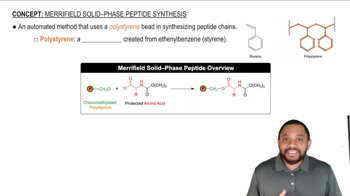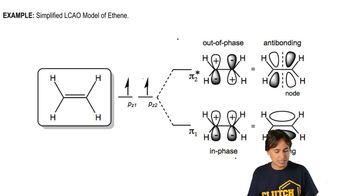For each of the following processes, indicate whether you expect ∆S° to be greater than, less than, or equal to 0. Explain your answer.
(b) 2 C6H14(l) + 19 O2(g) → 12 CO2(g) + 14 H2O(g)
 Verified step by step guidance
Verified step by step guidance Verified video answer for a similar problem:
Verified video answer for a similar problem:



 2:46m
2:46mMaster Explaining what entropy is. with a bite sized video explanation from Johnny
Start learning